第90章 Chapter 11 The Belief in Luck(6)
Closely bound up with this correlation of anthropomorphism and prowess is the fact that anthropomorphic cults act to conserve, if not to initiate, habits of mind favorable to a regime of status. As regards this point, it is quite impossible to say where the disciplinary effect of the cult ends and where the evidence of a concomitance of variations in inherited traits begins. In their finest development, the predatory temperament, the sense of status, and the anthropomorphic cult all together belong to the barbarian culture; and something of a mutual causal relation subsists between the three phenomena as they come into sight in communities on that cultural level. The way in which they recur in correlation in the habits and attitudes of individuals and classes today goes far to imply a like causal or organic relation between the same psychological phenomena considered as traits or habits of the individual. It has appeared at an earlier point in the discussion that the relation of status, as a feature of social structure, is a consequence of the predatory habit of life. As regards its line of derivation, it is substantially an elaborated expression of the predatory attitude.
On the other hand, an anthropomorphic cult is a code of detailed relations of status superimposed upon the concept of a preternatural, inscrutable propensity in material things. So that, as regards the external facts of its derivation, the cult may be taken as an outgrowth of archaic man's pervading animistic sense, defined and in some degree transformed by the predatory habit of life, the result being a personified preternatural agency, which is by imputation endowed with a full complement of the habits of thought that characterize the man of the predatory culture.
The grosser psychological features in the case, which have an immediate bearing on economic theory and are consequently to be taken account of here, are therefore: (a) as has appeared in an earlier chapter, the predatory, emulative habit of mind here called prowess is but the barbarian variant of the generically human instinct of workmanship, which has fallen into this specific form under the guidance of a habit of invidious comparison of persons; (b) the relation of status is a formal expression of such an invidious comparison duly gauged and graded according to a sanctioned schedule; (c) an anthropomorphic cult, in the days of its early vigor at least, is an institution the characteristic element of which is a relation of status between the human subject as inferior and the personified preternatural agency as superior. With this in mind, there should be no difficulty in recognizing the intimate relation which subsists between these three phenomena of human nature and of human life; the relation amounts to an identity in some of their substantial elements. On the one hand, the system of status and the predatory habit of life are an expression of the instinct of workmanship as it takes form under a custom of invidious comparison; on the other hand, the anthropomorphic cult and the habit of devout observances are an expression of men's animistic sense of a propensity in material things, elaborated under the guidance of substantially the same general habit of invidious comparison. The two categories -- the emulative habit of life and the habit of devout observances -- are therefore to be taken as complementary elements of the barbarian type of human nature and of its modern barbarian variants. They are expressions of much the same range of aptitudes, made in response to different sets of stimuli.